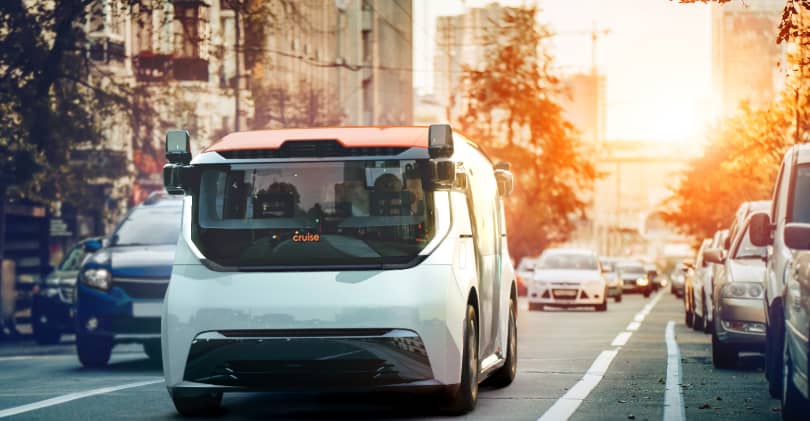
Cruise Origin
Cruise
The global autonomous vehicle industry is an $8 trillion market opportunity, according to General Motors’ autonomous vehicle unit Cruise.
Dan Ammann, CEO of the GM majority-owned autonomous vehicle subsidiary, on Wednesday said that valuation includes autonomous ride-hailing services to compete against current companies such as Uber and Lyft at a potentially $5 trillion sector; $2 trillion for freight; and $500 billion each for data insights and in-vehicle experiences.
“We’re bringing an extremely disruptive, transformational technology to a multitrillion-dollar market opportunity,” he said during an investor day for GM in New York, which was broadcast online.
Ammann, who previously served as president of GM, and other executives have said before that the autonomous vehicle industry is a multitrillion-dollar opportunity, however they hadn’t disclosed the specific market valuation.
To “unlock the market opportunity,” Ammann outlined how an autonomous vehicle lowers operating costs for companies that currently use human drivers, like Uber and Lyft, as well as advancements the company has made in bringing down costs related to vehicle production, software development and other factors.
“Our goal in the simplest possible terms is to build a superior product,” Ammann said. “It’s to build a product that is better than what people have as transportation alternatives today.”
Cruise Automation COO Dan Kan (l to r), Cruise Automation CEO Kyle Vogt and General Motors President Dan Ammann Tuesday, November, 20, 2018 at Cruise Automation offices in San Francisco, California.
Source: Noah Berger | General Motors
Cruise unveiled that “product,” known as the Origin, last month. The shuttle-like, all-electric autonomous vehicle features no manual controls such as a steering wheel or pedals. It offers wireless internet and device chargers that passengers can use while they ride, as well as three interior cameras that monitor the safety of people and their cargo on-board. The shared ride should be quiet, since the Cruise Origin is an all-electric vehicle, too.
Ammann did not say when the company plans to launch a commercial autonomous vehicle business for passengers or cargo. Cruise last year delayed the launch of a commercial, self-driving vehicle service in San Francisco, which it had expected to deploy in 2019. The company said its vehicles required further testing.
Ammann on Tuesday said the company is aiming to reach a “superhuman level of safety performance” for its autonomous vehicles that can drive more safely than the average human driver before any commercial launch. He said the company is “getting relatively close to approaching that level of performance.”
“We have less than one order of magnitude of improvement to go to get to superhuman performance in this environment,” he said. “We’re getting in the zone.”
Cruise has been operating an employee ride-hailing service with a current fleet of autonomous vehicles in San Francisco since 2017. The vehicles are based on GM’s all-electric Chevrolet Bolt EV.



